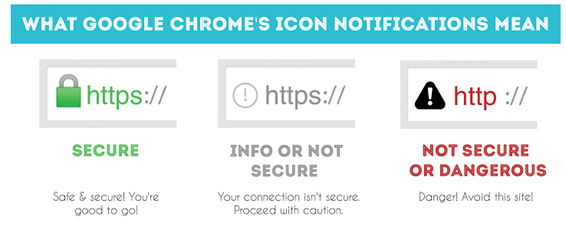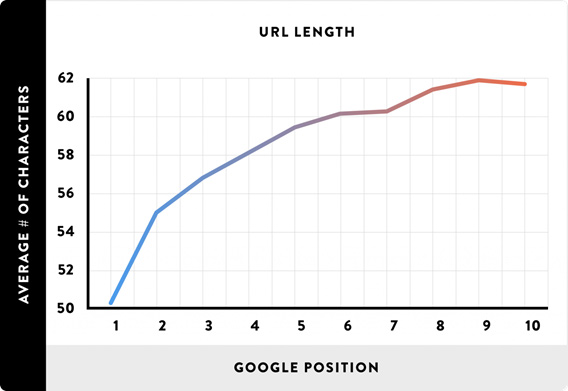Have you ever noted what Google displays for each query when you search? Many people instantly answer title and Meta description, but miss a 3rd aspect – Page URL. Similar to page titles, URLs also help describe a web page to search engines and potential audiences, which means a URL should be accurate, enticing, and well-structured. A well-optimized URL is important for both search engine optimization and user experience. Therefore, while you’re creating a new website or for an existing site, try to implement a search engine optimization-friendly URL structure that helps search engines make sense of each page.
What Is URL Structure?
A URL (Uniform Resource Locator), also known as permalink, is a webpage address that describes a resource and its location on a web page using simple words.
It is very important to structure your URL with simple words because it helps people know what the page is about, before landing on it. Moreover, the easier a URL is to read and understand, the better it will perform in search engine results.
URL Anatomy
A page’s URL is visible and used in web browsers, consists of many parts and the main part is made up of a domain name and/or subdomain name.
Image Source: https://ahrefs.com/blog/wp-content/uploads/2020/05/the-anatomy-of-a-url-4.png
However, for SEO, the important part of an URL is the slug, that is the text that specifies a unique page or post. You have to choose a slug every time you create a page or post. Though most content management systems automatically create a URL when a new page or post is created, you can edit the slug portion to optimize it for search engines and users.
Why Is It Important to Have an SEO-friendly URL?
An SEO-friendly URL is important for both searchers and search engines, because:
- It improves the user experience (UX)
- It helps determine how to rank your page based on SEO factors
Though search engines consider many variables when ranking a page, URLs are high on the list. This is because, when search engines crawl a website, your website URLs are the first thing they look at. They will inspect the URL structure to see if it’s confusing or not.
In case the search engine doesn’t clearly understand a site’s URL structure, it is very likely that some of the website pages may not get indexed. Therefore, ideally, create an SEO-friendly URL structure; that too, before developing a website, because the changes might be hard to implement after a website goes live. Moreover, creating your URL structure in the pre-development stage of a website will save you the time and hassle.
Check out an example of an SEO-friendly URL: https://longisland.medresponsive.com/content-writing-services/
From the above URL, you know that the destination page is referencing what’s on the specific page, that is, the page refers to content writing services.
Neither Google nor your site visitors will appreciate a bad URL structure as it can make you end up with endless redirect loops. So, get your URL structure right by involving a complex blend of usability and accessibility factors, along with some good old-fashioned SEO.
How to Create SEO-friendly URL Structure?
Though there is no one-size-fits-all approach, from a Search Engine Optimization (SEO) perspective, there are some best practices that you can adopt and follow when creating an SEO-friendly URL structure and set your websites up for future SEO success. Let’s see six best practices for creating SEO-friendly URLs.
- Accurately Describe the Page: While creating URLs, make sure you use words that accurately describes what your page is about. Include an accurate phrase or term that pertains to the page content so that users can make an accurate guess about the content simply by reading the URL.Moreover, having user-friendly URLs will benefit a website owner as it helps:
- People remember them
- Get a higher click through rate (CTR) from organic search
- More relevant to the content
- Use Target Keywords in the URL: One of the best URL practices and one that has the most direct impact on SEO (& UX) is having descriptive keywords in the URL. Including target keywords in the URL helps both search engines and humans understand the topic of the page. Make the keywords in your URL relevant to your resource and its content, so that it helps people assume what to expect when they click on it.Optimize every web page around one keyword, and include the exact keyword in the permalink portion of the URL.
Imagesource:https://onpagechamp.com/wp-content/uploads/2020/02/recommended-url-format.pngWhile placing the keyword in the URL, make sure to place it in the beginning of the URL, as search engine spiders do not give as much significance to words toward the end of a URL.
Even though incorporating keywords is important, do not overuse it, because search engines recognize keyword stuffing and will penalize your website for those actions.
- Make URLs Secure: Security is one of the most important aspects of your website, therefore, rather than using HTTP, protect your website’s integrity and your users who connect to it by using HTTPS. In fact, Google has stated that it uses HTTPS as a ranking signal, because, compared to HTTP, it is much more secure.
ImageSource:https://onpagechamp.com/wp-content/uploads/2020/02/chrome-security-warning.pngHTTPS is much valued by search engines, as they don’t want to be directing people to unsafe websites. By installing an SSL certificate, your site will be trustworthy, and you give users and search engines peace of mind while navigating your website.
- Keep URLs Short: According to a study by Matthew Barby, the average URL length for pages which rank on #1 spot in Google search results is only 59 characters. Therefore, it’s better to have shorter URLs than longer URLs.
Imagesource:https://mk0apibacklinkov1r5n.kinstacdn.com/app/uploads/2019/02/good-url-example-960×304.pngThere are many benefits of shorter URLs, such as
- They are easier to remember.
- They are easier to share on social media.
- They provide improved search engine rankings.
- Makes your website look much more reliable and authoritative.
- Match your page content with user expectations.
With a shorter URL, you don’t run the chance of being cut off in organic search results, and can also avoid using unnecessary folders.
So, when it comes to your URL length, try to keep it to less than 100 characters, be more concise and cut out words around the keyword that aren’t needed for clarity. The shorter and more meaningful your URL, the more brand searches and direct traffic you’ll get from users who remembered it.
Image source: https://mk0apibacklinkov1r5n.kinstacdn.com/app/uploads/2019/01/shorter-urls-and-higher-google-rankings-are-strongly-correlated-1280×881.png - Use Less Folders in a URL: “Folders,” are simply the slashes you see between texts in a URL. Using a ton of folders makes your navigation more complicated, so it’s best to keep it simple with the number of folders you use in your URLs.To keep the URL structure simple and shorter, it’s recommended to use a maximum of two folders per URL. By doing so, you make your URL way more eye appealing, and easier for search engines to decipher the meaning.
Image Source: https://neilpatel.com/wp-content/uploads/2017/05/image17-3.png - Use Lowercase Letters in URLs: Though most modern servers treat capital and lowercase letters in URLs the same, some don’t. This could lead to duplicate URLs\ a 404 error and loss of page rank. Therefore, to be on the safe side, keep your website consistent with lowercase for all of the letters in your URLs.Image Source: https://onpagechamp.com/wp-content/uploads/2020/02/url-lowercase-letters.png
To help your site rank higher in search results and entice users to visit your pages, utilize these best practices for SEO-friendly URLs. But remember that Google likes to change the rules and to stay updated with the latest rules you have to keep your eye open for changes in the world of SEO. Relying on a professional digital marketing company would help you create SEO-friendly and optimized URLs that are necessary for your website and thereby attract more users to your site.











